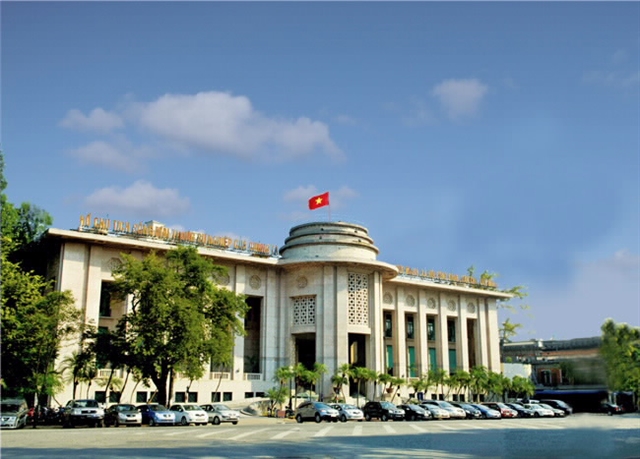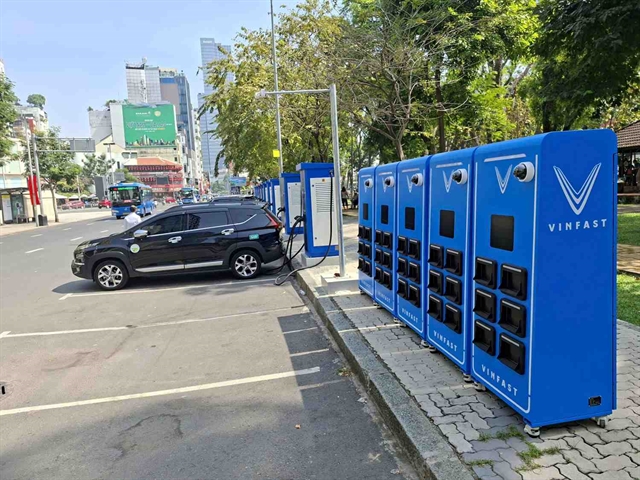 Environment
Environment

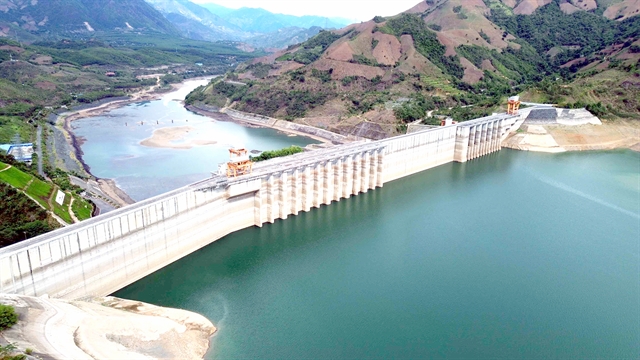 |
| Many hydroelectric power plants in Việt Nam have witnessed critically low water levels this summer. — VNA/VNS Photo Quang Quyết |
HÀ NỘI — As Việt Nam faces increasing challenges regarding water resources, experts are highlighting the importance of clear responsibilities of authorities, as well as the public's own engagement.
The country has recently witnessed critically low water levels at hydroelectric power plants, which led to a crisis in the power supply across the country.
With the amendment of the Law on Water Resources underway, many experts point out that it is necessary to develop a mechanism that can address the ongoing shortcomings regarding national water management.
Việt Nam has around 3,450 rivers and streams of 10km or more in length, said Ngô Mạnh Hà, deputy director of the Department of Water Resources Management (under the Ministry of Natural Resources and Environment).
The total water volume of these flows reaches about 7.9 trillion cubic metres. Việt Nam is not water-deprived per capita, he added.
However, when considering that domestic water production only accounts for about 40 per cent of the total amount and the remaining 60 per cent is imported, Việt Nam is at risk of water scarcity as there are only 4,421cu.m per person per year.
This figure is much lower than the Southeast Asia region’s average, Hà said.
He added that with the introduction of the Law on Water Resources in 1998, amended in 2012, water management and protection have witnessed positive changes, with increased awareness among the people.
“However, we must face the fact there are many shortcomings in water management in Việt Nam,” said Hà.
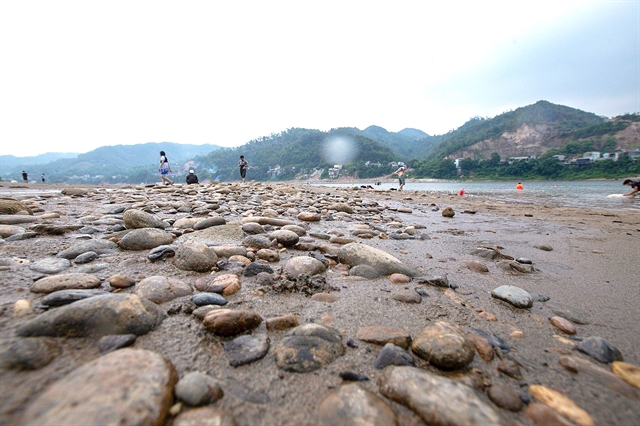 |
| The rock bed was exposed due to water scarcity in June in the Đà River, which is connected to the Hòa Bình Hydroelectric Plant in the north. — VNA/VNS Photo Trọng Đạt |
One of the reasons is the overlap in management. For example, a river can have multiple ministries and departments in charge, with numerous regulations concerned.
The Ministry of Natural Resources and Environment (MoNRE) is in charge of managing water sources, while the Ministry of Agriculture and Rural Management (MARD) and the Ministry of Industry and Trade (MoIT) operate reservoirs, dams, pumping stations, irrigation structures and hydroelectric projects, and the Ministry of Transport (MoT) regulates waterway traffic.
Hà said: “This overlapping management decreases the efficiency and effectiveness of water resources management.
“In addition, the 1998 and 2012 water resources laws are still lacking a framework on water security.”
Meanwhile, the use of water is currently not effective or taking into account the true value of the resource in socio-economic development.
Law enforcement at the local level is also not stringent enough, while inappropriate and even illegal use of water is still common among many organisations and individuals, he said.
During the development of the national master plan, the MoNRE issued guidelines to localities on regulating water use in provincial plans.
However, the topic has not received adequate attention, leading to the mere modest focus on water resources management in local planning.
Hà added: “The urgent matter is to amend the legal framework on water resources.”
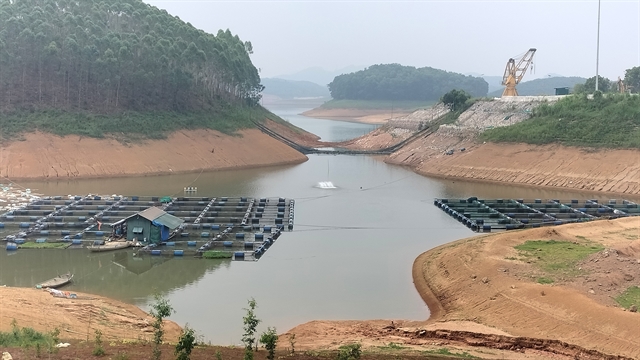 |
| Aquaculture zones in Thác Bà Lake, Yên Bái Province encountered numerous challenges in June this year due to 20-year-lows in water levels. — VNA/VNS Photo Tuấn Anh |
According to Nguyễn Quang Huân, a member of the National Assembly’s Committee on Science, Technology and Environment, 92 per cent of the water resources in Việt Nam are used for agriculture, while only 3 per cent are for household use and 5 per cent for industries.
He added: “These figures show that management will be difficult without proper surveying and categorising purpose of use.
“Current water resources management is basically in the MoNRE’s scope, but it concerns many other ministries, such as the MARD and the MoIT.
“It will be difficult for the MoNRE to fulfil their task without great coordination.”
Dividing responsibilities
Amending the water resources law was a topic of discussion at the recent fifth plenary session of the 15th National Assembly (NA) with the aim to perfect the legal framework for water management and security.
The topic received substantial attention with dozens of NA deputies participating in the discussion.
Nguyễn Quang Huân stressed that water resources are a matter of priority, as it is essential to the daily needs of life as well as to socio-economic development.
He suggested that in this amendment, the drafting committee look into dividing clear responsibilities between ministries and departments to avoid overlapping management, regarding the fair and effective use of water resources.
Sharing the same perspective, Ngô Mạnh Hà added that clear responsibilities are an important issue that requires radical solutions.
The amendment also needs to integrate the content of the existing laws, on the basis of a shared database system.
Hà said: “The most important criteria in this amendment is to base on actual demands, as well as the requirements of the Party and the State in ensuring national water security.
“Regarding the structure of the legal document, we opt for a holistic approach, which means that ministries and departments all need to take responsibility regarding water security, not only the MoNRE.”
He added that the MoNRE has also proposed general regulations that aim to encourage organisations and individuals to take charge in protecting water resources. — VNS



